It's been a running joke on the college football internet that at some point the ACC Coastal is going to fulfill its perfect mediocrity and give us a seven-way tie at 4-4. That was never going to happen in 2019 with Georgia Tech going into full-on rebuild mode, but we got the next-best thing: a seventh different champion in seven seasons. Virginia's title run was aided by incredible play from quarterback Bryce Perkins and incredibly timed breakdowns from teams such as Virginia Tech, North Carolina and especially Miami.
The 2020 season, such as it will exist amid the coronavirus pandemic, will offer us another shot at the seven-way tie, but the odds might be even worse than normal. My SP+ projections like three teams quite a bit more than the pack, and they happen to be the three -- North Carolina, Miami and Virginia Tech -- with something exciting to offer at the quarterback position. There should be a lot of really solid line play in the Coastal overall this season, but known signal-callers are lacking.
Jump to: Duke | Georgia Tech | Virginia | Pittsburgh
Virginia Tech| Miami | North Carolina
Duke

Coach: David Cutcliffe (72-79, 13th year)
2019: 5-7 (3-5 in ACC), 68th in SP+
2020 projection: 5-7 (3-5), 69th
Five best returning players: DE Chris Rumph II, DE Victor Dimukeje, C Jack Wohlabaugh, LB Shaka Heyward, S Michael Carter II
Cutcliffe, one of the most experienced and respected coaches in the business, probably knew in advance that 2019 would be a transition year of sorts. Quarterback Daniel Jones and his top four pass targets were all gone, and Cutcliffe was going to have to get creative to keep new starting QB Quentin Harris in friendly downs and distances. Plus, his running back corps would get thinned out by injury, and he'd end up giving 1,765 snaps to freshman offensive linemen.
As it became painfully obvious the run game wasn't going to carry its weight, Cutcliffe tried to lean on a quick passing game as a run substitute. It worked for a while. Harris threw at least 45% of his passes within 5 yards of the line of scrimmage against Middle Tennessee, Virginia Tech and Georgia Tech, and Duke scored at least 41 points and beat all three. In all, the Blue Devils averaged 34 points per game during a 4-2 start, 40 per game against teams not named Alabama. Harris hit the midway point of the season with a 64% completion rate and 134.1 passer rating.
The rest of the season: 53% and 97.5, respectively. Duke lost five games in a row, averaging 14 points per game in the process. Give defensive coordinators enough time and they'll force you to Plan B. Cutcliffe and coordinator Zac Roper couldn't find one, and Duke ended up 112th in offensive SP+.
The ceiling might be a bit higher this season. Clemson transfer Chase Brice comes to Durham, North Carolina, after two years of backing up Trevor Lawrence, and Stanford transfer Devery Hamilton joins the line. The skill corps -- RB Deon Jackson, WR Jalon Calhoun, TE Noah Gray -- is more experienced, though there aren't many traces of big-play potential; sophomore receivers Darrell Harding Jr. and Eli Pancol did average 15.8 yards per catch, but on only 14 catches.
If there's hope, it comes on defense. Duke's D has ranked better than its O for each of the past six seasons and climbed to 36th in defensive SP+ in 2019. The line gets thinned out but returns a dynamite pair of ends in Rumph and Dimukeje, and the secondary, with safeties Marquis Waters and Michael Carter II and cornerbacks Leonard Johnson and Josh Blackwell, is solid across the board. If long-injured corner Mark Gilbert finally finds his footing -- he earned All-America votes in 2017 but missed the past two seasons rehabbing a devastating hip injury -- then this becomes one of the ACC's best units.
Brice gets a nice breaking-in period, as four of Duke's first five games come against teams projected 81st or worse in SP+. The Blue Devils could start 4-2 or 5-1, but they are projected underdogs in each of their final seven games. They need to win most of their winnable games to return to the postseason. Cutcliffe has made Duke consistently competitive -- a herculean accomplishment -- but needs a few more plus players to catch back up in the Coastal.
Georgia Tech
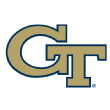
Coach: Geoff Collins (3-9, second year)
2019: 3-9 (2-6 in ACC), 111th in SP+
2020 projection: 4-8 (3-5), 58th
Five best returning players: RB Jordan Mason, S Juanyeh Thomas, LG Jack DeFoor, LB David Curry, CB Tre Swilling
Collins' first season in Atlanta was a thought experiment come to life; it was the ultimate Year 0. What happens if you try to move on from the triple option while fielding a two-deep that deploys almost nothing but freshmen and sophomores on both sides of the ball? We got to find out.
The results were predictably painful on offense. With freshman quarterback James Graham, sophomore running back Mason, freshman wide receiver Ahmarean Brown and sophomore receivers Malachi Carter and Adonicas Sanders leading the way and eight freshmen and sophomores seeing snaps on the line, Tech's offense was really, really bad. The Yellow Jackets were 117th in offensive SP+ and 125th in overall success rate. Mason actually had a pretty solid season all things considered (899 yards, 5.2 per carry), and DeFoor earned honorable mention all-conference honors. That's something.
The defense was nearly as young: Collins and coordinator Andrew Thacker gave 16 freshmen and sophomores at least 100 snaps each and handed nine redshirting freshmen a few snaps, as well. Still, they managed to improve Tech's output from 100th to 71st in defensive SP+. The D couldn't get off the field on passing downs (the pass rush needs work), but it forced passing downs pretty well, and the red zone defense was downright good. And now the Yellow Jackets return almost literally everyone. A secondary that features safeties Thomas, Tariq Carpenter and Kaleb Oliver and cornerbacks Swilling and Zamari Walton is particularly exciting.
If last year was Year 0, then his Year 1 should be a little bit more fun. The offense will still be a major work in progress, though Mason should run behind a solid line and crack 1,000 rushing yards if he stays healthy (and if there are enough games, obviously). A little more consistency out of the receiver trio -- which averaged 15.8 yards per catch but with a dreadful 50% catch rate -- would be beneficial.
The defense has, at worst, top-50 potential. Considering the Jackets haven't topped 49th in defensive SP+ since 2008, that's exciting. Thirteen of Tech's top 14 tacklers return, plus transfers Antonneous Clayton (Florida defensive end) and Derrik Allen (Notre Dame defensive back) are eligible, and a few members of Collins' 27th-ranked recruiting class -- four-star corner Miles Brooks, or high-three-stars such as corner Jalen Huff and ends Akelo Stone and Jared Ivey -- could crack the rotation. (Collins' haul also included four-stars in QB Jeff Sims and RB Jahmyr Gibbs, either of whom could see time quickly.) This defense has massive growth potential. As soon as it finds a pass-rusher.
Even with a strong defense, finding six wins will be difficult, as Tech plays Georgia, Notre Dame and UCF in the nonconference schedule and draws a season opener against Clemson in cross-division play. SP+ projects the Jackets to improve dramatically but gives them only about a 1-in-5 chance of bowling. Still, improving on last season's 3-9 record is likely, and Tech will carry a truckload of experience into 2021.
Virginia
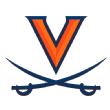
Coach: Bronco Mendenhall (25-27, fifth year)
2019: 9-5 (6-2 in ACC), 44th in SP+
2020 projection: 6-6 (3-5), 44th
Five best returning players: C Olusegun Oluwatimi, DE Aaron Faumui, LB Noah Taylor, WR Terrell Jana, LB Zane Zandier
First, a moment of appreciation for Bryce Perkins. Virginia's two-year starting quarterback threw for 3,538 yards and rushed for 1,011 (not including sacks) last season, leading the Cavaliers to their first Coastal crown and providing a massive shot in the arm for the program Mendenhall is trying to build. Perkins threw for 300-plus yards on four occasions last season and rushed for 100-plus in three games, including the Cavaliers' division-clinching (and rivalry losing streak-ending) win over Virginia Tech. With NFL teams on the lookout for Lamar Jackson run-and-pass-type QBs, the Los Angeles Rams did a nice job of scooping him up undrafted.
Without Perkins in 2020, the training wheels come off. It has seemed Mendenhall is building a lovely developmental program at UVa, with skill guys such as wide receiver Jana and slot man Billy Kemp IV and, in 2019, a line loaded with sophomores and juniors providing mostly error-free blocking. But now we'll find out just how many cracks Perkins' presence papered over. Veteran offensive coordinator Robert Anae will be asking a lot of his sophomore and junior classes; players such as running back Wayne Taulapapa and receivers Tavares Kelly Jr. and Dontayvion Wicks will be required to produce more.
These classes will probably produce Perkins' successor, too. Sophomore Brennan Armstrong completed 15 of 20 passes in reserve duty last season, and junior Mississippi State transfer Keytaon Thompson flashed massive run potential in Starkville, scoring 10 touchdowns and averaging nearly 7 yards per carry, but he also completed only 48% of his passes. Both have potential and a strong line in front of them, but Perkins set the bar high.
After rising to 37th in defensive SP+ in 2017, then 31st in 2018, Virginia fell back to 52nd last season after a run of injuries in the secondary. The major culprit: big plays. The Cavaliers were 112th in my marginal explosiveness measure, which measures the magnitude of successful plays and adjusts for down, distance and field position.
If that slide was indeed because of injury and not iffy upside, we should see a rebound. The front seven returns almost intact, and of the seven DBs to log at least 260 snaps last season, five return. There are plenty of playmakers as well: The Cavaliers had nine players with at least five tackles for loss last season, and seven return; they had eight players with at least four passes defensed, too, and seven return (plus Darrius Bratton, who had seven in 2018 before missing 2019 with injury).
It's hard to consider UVa a serious Coastal contender until we know what it has at the QB position, but the defense should improve enough to offset likely offensive regression, and if the Cavaliers survive a brutal September -- they are scheduled to play Georgia on Sept. 7 and Clemson on Sept. 26 -- with their confidence intact, there are lots of potential wins on the back half of the schedule. At worst, after bowling once from 2008 through 2016, they should do so for a fourth consecutive season.
Pittsburgh

Coach: Pat Narduzzi (36-29, sixth year)
2019: 8-5 (4-4 in ACC), 49th in SP+
2020 projection: 7-5 (4-4), 42nd
Five best returning players: S Paris Ford, C Jimmy Morrissey, DE Rashad Weaver, DE Patrick Jones II, DT Jaylen Twyman
If you're lucky, injuries will help you in the future tense as much as they hurt you in the present tense. A season-ending injury to a star means you spend a year finding and developing other potential weapons, and if/when the star returns the next season, the squad ends up better overall.
Sometimes, strangely enough, they help in both the present and future.
Heading into 2019, Pitt had averaged just a 52.8 ranking in defensive SP+ in four seasons under Narduzzi. The Panthers had to replace half of their two-deep in the front seven, and it appeared star end Weaver would have to carry a lot of weight for the defense to hold up.
Instead, Weaver suffered a season-ending knee injury in fall camp. Tackle Keyshon Camp went down in Week 1, too. Narduzzi had to lean on end Patrick Jones II and a ton of key sophomores.
Instead of collapsing with an untested lineup, Pitt surged from 53rd to 12th in defensive SP+. Jones and three sophomores -- end Deslin Alexandre, tackle Twyman and linebacker Cam Bright -- combined for 43.5 tackles for loss and 25 sacks. Sophomore safety Ford, a local product and the most highly touted recruit of the Narduzzi era, took a massive step forward, too. He led a nasty secondary that ranked third in the nation in passing success rate allowed.
Ford, free safety Damar Hamlin and corner Damarri Mathis all return, as does everyone mentioned previously in the front seven. Weaver and Camp are back, too. It seems the Panthers could sustain or improve on last season's sudden gains. If they get anything whatsoever from the offense, the Panthers could contend in the Coastal.
So ... about that offense.
Safe to say, the first-year partnership of offensive coordinator Mark Whipple and quarterback Kenny Pickett didn't go as planned. Pickett threw for 3,098 yards, but in more than 40 pass attempts per game. His passer rating (122.4) ranked 101st in FBS, his Total QBR (55.3) 74th. He torched two decent MAC opponents but threw nine picks to eight touchdowns in conference play. The Panthers weren't very good at staying on schedule and were dreadful once they fell behind the chains. And that was with star receiver Maurice Ffrench, now a Kansas City Chief.
The skill corps still has experience -- backs A.J. Davis, Vincent Davis and Todd Sibley Jr. and wide receivers Taysir Mack, Shocky Jacques-Louis and Jared Wayne all return, and Florida tight end transfer Lucas Krull joins the mix. Plus, the line returns not only all-conference center Morrissey, but also four other linemen with starting experience.
Pitt is scheduled to play six opponents projected 58th or worse, which should boost the win total a decent amount, but five opponents 31st or better will create a low ceiling if the QB position doesn't improve. Either Pickett, sophomore Nick Patti, redshirt freshman Davis Beville or, if eligible, Arizona State transfer Joey Yellen need to raise the bar significantly.
Virginia Tech
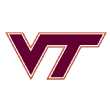
Coach: Justin Fuente (33-20, fifth year)
2019: 8-5 (5-3 in ACC), 38th in SP+
2020 projection: 8-4 (5-3), 31st
Five best returning players: LB Rayshard Ashby, NB Chamarri Conner, LT Christian Darrisaw, QB Hendon Hooker, CB Caleb Farley
Was your quarterback good? Y/N
Was your quarterback healthy? Y/N
It's too simplistic to boil a coach's entire tenure down to those two questions, but damned if it doesn't tell a lot of the story sometimes.
Fuente's four-year Virginia Tech tenure, told through these questions:
2016: Juco transfer Jerod Evans thrives, throwing for 3,552 yards and 29 touchdowns and rushing for 1,008 non-sack rushing yards and 12 more scores. Tech wins 10 games in Fuente's debut, takes the ACC Coastal title and nearly upsets Clemson in the conference title game.
2017: Evans goes pro a year earlier than anyone expects, and Josh Jackson enters the starting lineup earlier than planned. He starts well but fades late; Tech does, too, starting 7-1 and finishing 2-3.
2018: Jackson produces a 170.4 passer rating during a 2-0 start but is lost for the season with a knee injury in the third game. The Hokies lose six of eight, and while they eke out bowl eligibility, they finish under .500 for the first time in 26 years.
2019: Jackson transfers, and successor Ryan Willis starts out at the helm. Tech starts 2-2 and gets rocked by Duke, however. Hooker takes over, and in his first six healthy games, Tech goes 6-0. The Hokies lose to Virginia and Kentucky to end the season but score 30 points in both games.
Fuente enters 2020 under a decent amount of pressure. In large part because of QB instability, he's gone just 14-12 the past two seasons, and now he has to break in a new defensive coordinator (Justin Hamilton) following the retirement of the legendary Bud Foster. But Fuente's recent history suggests that, if Hooker is as good as he looked last season, and if he can remain in the lineup, Tech will contend in the Coastal. Tech averaged 36 points per game with Hooker behind center, brings back its entire offensive line (including potential all-conference left tackle Darrisaw) and three of its top four receivers, and welcomes running back transfers Khalil Herbert (Kansas) and Raheem Blackshear (Rutgers) to a group that includes high-efficiency sophomore Keshawn King.
We don't know how much Hamilton, a fast-rising coach, will attempt to change from Foster's structure, but we know he inherits playmakers in linebacker Ashby (17 tackles for loss, 25 run stuffs), nickel Conner (10 TFLs, 9 passes defensed) and cornerbacks Jermaine Waller and Farley (combined: seven interceptions, 22 breakups). Every defensive tackle in the rotation returns, and Fuente added prolific Youngstown State end Justus Reed (19 TFLs, 12.5 sacks) as a grad transfer. Tech, 39th in defensive SP+, was dramatically all-or-nothing on defense -- seventh in marginal efficiency, 110th in marginal explosiveness. This group should assure plenty more nothings to go with the alls.
Tech will have a chance to to start quickly, with five of its first seven opponents projected 58th or worse. But how the Hokies finish, and how well Hooker plays and/or stays on the field, might define the season.
Miami
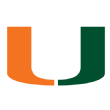
Coach: Manny Diaz (6-7, second year)
2019: 6-7 (4-4 in ACC), 33rd in SP+
2020 projection: 8-4 (5-3), 23rd
Five best returning players: DE Gregory Rousseau, CB Al Blades Jr., TE Brevin Jordan, C Corey Gaynor, S Gurvan Hall Jr.
My postgame win expectancy measure takes all the key, predictive stats from a given game -- the things that eventually go into the SP+ machine -- and declares, "with this set of stats, you could have expected to win this game X% of the time."
Over a long period of time, it can show you which coaches (Bill Snyder, Ken Niumatalolo) most consistently defy stats and close-game regression. But in the short term, it can tell us a lot about who was particularly lucky or unlucky in a given season.
Lucky: Miami (Ohio). Adding up their postgame percentages, the Redhawks should have expected to win about 4.8 games last season. They won eight.
Unlucky: Miami (Florida). On average, the Hurricanes should have won about 8.7 games with the stats their games produced in 2019. They won six.
Miami had a 71% postgame win expectancy against North Carolina and lost 28-25. It was 82% against Virginia Tech, and Miami lost 42-35. Georgia Tech: 72% and a 28-21 loss. Florida International: 91% and a 30-24 loss. Diaz's first Hurricanes squad figured out just about every possible way to outgain and potentially outplay an opponent and still lose. Despite a mediocre record in a mediocre conference, the Hurricanes still finished the season 33rd in SP+, and with a healthy amount of production returning, they're projected to rise 10 spots this fall.
Some ringers will help. The Canes were 81st in offensive SP+ last season, but Houston transfer D'Eriq King and new offensive coordinator Rhett Lashlee could do interesting things together. King came close to a 3,000/1,000 season in 2018, and Lashlee has experience on both main branches of the spread tree after time with both Auburn's Gus Malzahn and SMU's Sonny Dykes. This might be a fun combination.
King's supporting cast is not very senior-heavy, but players such as tight end Jordan, slot man Mike Harley, wide receiver Mark Pope and running back Cam'Ron Harris have both efficiency and explosiveness potential (wideout Dee Wiggins has the latter, at least), and the line returns almost everybody.
Diaz and defensive coordinator Blake Baker have a lot of turnover to deal with in the front seven, but they'll also have maybe the best defensive end duo in the country in Rousseau and Temple transfer Quincy Roche, who combined for 38.5 TFLs, 28.5 sacks and 45 run stuffs last season. There's size at tackle, too, and this should help what might be a sophomore-heavy linebacking corps. In the secondary, safeties Hall, Amari Carter and Bubba Bolden and cornerbacks Blades and DJ Ivey are top-notch.
If Miami is indeed a top-25 caliber team -- and there's admittedly a little bit of "who are you going to believe, the stats or your lying eyes?" going on here -- then the schedule suggests a big season. The Canes play only one team projected higher (North Carolina) and only two other top-40 foes. They'll have every chance in the world to prove last season was a statistical fluke.
If it was indeed a fluke, anyway.
North Carolina
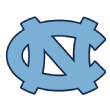
Coach: Mack Brown (76-52-1, 12th total year)
2019: 7-6 (4-4 in ACC), 30th in SP+
2020 projection: 9-3 (6-2), 16th
Five best returning players: QB Sam Howell, ILB Chazz Surratt, WR Dyami Brown, WR Dazz Newsome, CB Storm Duck
I'll admit, I didn't like the aesthetics of Brown's return to North Carolina. With so few great coaching opportunities for up-and-comers available in a given year, the thought of a retiree like Brown or, the year before, Herm Edwards cutting in line to get one of them rubbed me the wrong way.
It all looks great if it works, though, and one cannot deny that Brown seems to be making the most of this career coda. He inherited a reasonable-upside team from Larry Fedora, one that had been banged up for two straight years. He stole blue-chip quarterback (and Florida State commit) Howell in recruiting. He hired a pair of exciting young coordinators -- Phil Longo on offense, Jay Bateman on defense. And with a lineup that returns almost wholly intact this fall, he CEO'd his way to a 7-6 campaign; considering the Tar Heels had won five combined games in 2017-18, that's a solid start.
Now, with massive returning production and the 16th-ranked recruiting class coming to town, Brown has got actual expectations on his hands again.
We grade freshman quarterbacks on a curve, but by the end of 2019, Howell didn't need one -- he was just plain awesome. He battled through up-and-down, freshman-type play for a couple of months, but over the last five games, which included battles with Pitt's best defense in ages and a pre-collapse Virginia defense, he completed 66% of his passes with a 182.0 passer rating. Even with early volatility, he finished 31st in Total QBR. He gets his top five wideouts back, too, including dual thousand-yard receivers in Newsome and Brown. The run game could stand to be more consistent (the Tar Heels were just 66th in rushing success rate), but the top two RBs return, as do six linemen with starting experience, all of whom were freshmen and sophomores last season.
Bateman wasn't quite as immediately successful as Longo -- UNC was 25th in offensive SP+, 44th on defense -- but the front and back of his defense were awfully young. Four freshman/sophomore linemen and four such DBs all logged at least 130 snaps. Sophomore corners Duck and Trey Morrison allowed just a 51% completion rate, and junior Raymond Vohasek can disrupt from end or tackle up front. OLB Tomon Fox is an ace pass-rusher, and inside linebacker Surratt earned all-ACC honors in his first season after converting from quarterback. If Desmond Evans, ESPN's top D-end recruit for 2020, carves out a pass-rushing niche opposite Fox, it certainly seems the upside is high here.
We'll know what we need to know about UNC pretty quickly. The Tar Heels are scheduled to start against UCF and Auburn in the first two weeks, then face a hangover game against FCS heavyweight James Madison after that. If they start 3-0, this is a team with top-10 potential. Opening 2-1 would be pretty good, too.
